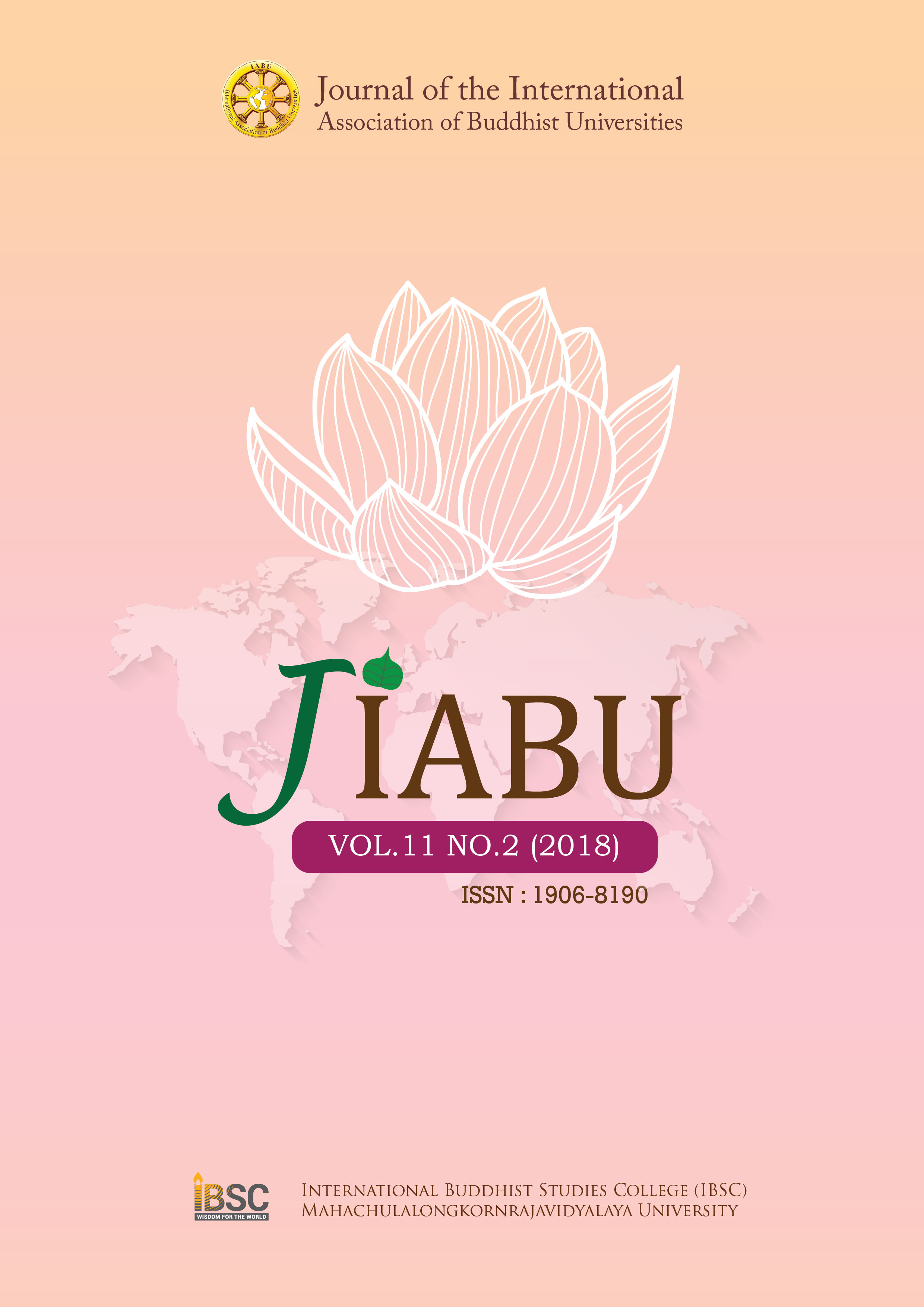ASEAN Integration: Human Dignity and Responsibility to Humanity from a Buddhist Perspective
Main Article Content
Abstract
Human beings, as individuals, are free to choose their own course of action for
achieving liberation. Humans are a mindful species, and as such: human responsibilities
and human rights should complement, not supersede one another. Emphasizing social and
moral responsibility must not lead to a removal of that basic intuition of human rights that
seeks legal protection for the individual’s freedom of self-determination. On the other hand,
this right cannot prevail without any limitations. It finds its limits - as already stated in the
Human Rights Declaration from 1948 - at the right of others and “the just requirements of
morality, public order, and the general welfare”. Community wellbeing must not be cashed
by unfettered individual liberty. This is the basis and foundation for the mindful development
of a healthy and sustainable integrated ASEAN community.
Article Details
Views and opinions expressed in the articles published by The Journal of the International Association of Buddhist Universities (JIABU), are of responsibility by such authors but not the editors and do not necessarily reflect those of the editors.
References
Digha Nikaya III:113
Digha Nikaya I: 70
Anguttara Nikaya I: 189
Digha Nikaya II: 74-75
https://en.wikipedia.org/wiki/Islamic_State_of_Iraq_and_the_Levant
https://en.wikipedia.org/wiki/Charlie_Hebdo
http://hmb.utoronto.ca/HMB303H/weekly_supp/week-02/Langlois_Asian_Values.rtf
Bhikhu C. Parekh, "Rethinking Multiculturalism: Cultural Diversity and Political Theory", Harvard University Press,
2002


